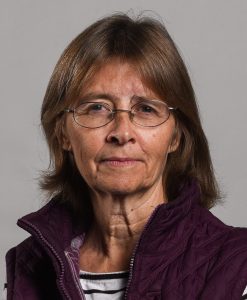Past Speakers
Daniel Golden
December 12, 2022
Topic: Ransomware: A Global Challenge
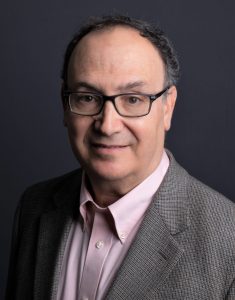 Journalist and author Daniel Golden is a Boston-based Senior Editor and Reporter at ProPublica. Golden has been instrumental in three Pulitzer Prizes, two as an editor and one as a reporter.
Journalist and author Daniel Golden is a Boston-based Senior Editor and Reporter at ProPublica. Golden has been instrumental in three Pulitzer Prizes, two as an editor and one as a reporter.
Golden won a Pulitzer as a reporter for The Wall Street Journal in 2004 for a series of articles on preferences for children and donors in college admissions. He expanded that series into a critically acclaimed national bestseller, “The Price of Admission: How America’s Ruling Class Buys Its Way Into Elite Colleges — and Who Gets Left Outside the Gates.” An updated edition was published in October 2019 with new reporting on the Operation Varsity Blues scandal.
Golden’s book, “Spy Schools: How The CIA, FBI, and Foreign Intelligence Secretly Exploit America’s Universities,” was published by Henry Holt in October 2017. Spy novelist John Le Carre praised it as “timely and shocking,” and former US Homeland Security Secretary Janet Napolitano called it a “must-read.” He is the co-author, with ProPublica reporter Renee Dudley, of “The Ransomware Hunting Team,” which was published by Farrar, Straus and Giroux in fall 2022.
Golden co-edited a ProPublica series on Latin American asylum-seekers caught between the US government and the MS-13 gang, which won the 2019 Pulitzer Prize for feature writing. Before joining ProPublica in October 2016, he worked as managing editor for education and enterprise at Bloomberg News. There he edited a series about tax inversions — companies moving headquarters overseas to avoid taxes — that earned Bloomberg’s only Pulitzer Prize in 2015.
Golden spent 17 years as a staff reporter at the Boston Globe, including a stint on its Spotlight team, and served as senior editor for investigations at Conde Nast Portfolio. Among other honors, he has won three George Polk awards, three National Headliner awards, the Sigma Delta Chi award, the Gerald Loeb Award, the Overseas Press Club award, the New York Press Club Gold Keyboard award, and two Education Writers Association Grand Prizes. He was a finalist for the 2011 Pulitzer Prize for public service for a series exposing recruiting abuses by for-profit colleges. A Harvard College graduate, he was a John S. Knight Journalism Fellow at Stanford in 1998-99.
Steven Pifer
December 5, 2022
Topic: Putin's War: Ramifications and Response
Steven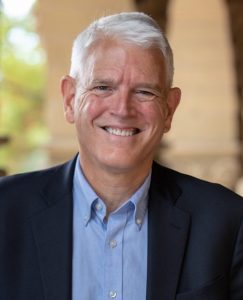 Pifer is an affiliate with Stanford University’s Center for International Security and Cooperation as well as a non-resident senior fellow with the Brookings Institution. He was a William J. Perry Research Fellow at the center from 2018-2020 and a fellow at the Robert Bosch Academy in Berlin from January-May 2021.
Pifer is an affiliate with Stanford University’s Center for International Security and Cooperation as well as a non-resident senior fellow with the Brookings Institution. He was a William J. Perry Research Fellow at the center from 2018-2020 and a fellow at the Robert Bosch Academy in Berlin from January-May 2021.
Pifer’s research focuses on nuclear arms control, Ukraine, Russia and European security. He has offered commentary on these issues on National Public Radio, PBS NewsHour, CNN, Fox News and BBC, and his articles have run in the New York Times, Washington Post, National Interest, Moscow Times and Kyiv Post, among others. He is the author of “The Eagle and the Trident: U.S.-Ukraine Relations in Turbulent Times” (Brookings Institution Press, 2017), and co-author of “The Opportunity: Next Steps in Reducing Nuclear Arms” (Brookings Institution Press, 2012).
A retired Foreign Service officer, Pifer’s more than 25 years with the State Department focused on U.S. relations with the former Soviet Union and Europe, as well as arms control and security issues. He served as deputy assistant secretary of state in the Bureau of European and Eurasian Affairs with responsibilities for Russia and Ukraine (2001-2004), ambassador to Ukraine (1998-2000), and special assistant to the president and senior director for Russia, Ukraine and Eurasia on the National Security Council (1996-1997). In addition to Ukraine, he served at the U.S. embassies in Warsaw, Moscow and London as well as with the U.S. delegation to the negotiation on intermediate-range nuclear forces in Geneva. From 2000 to 2001, he was a visiting scholar at Stanford’s Institute for International Studies, and he was a resident scholar at the Brookings Institution from 2008 to 2017.
Ambassador Pifer is a 1976 graduate of Stanford University with a bachelor’s in economics.
Senator Angus King
October 14, 2022
Topic: A "Hinge of History," Defending Democracy from Modern Threats
Pamela Constable
October 10, 2022
Topic: Afghanistan under Taliban Rule Today
Christopher Miller
September 12, 2022
Topic: Warnings about America’s Most Dangerous Enemies
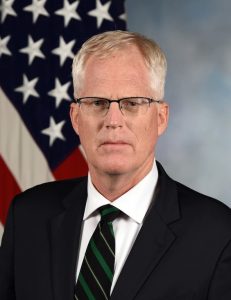 Christopher C. Miller served as the Acting Secretary of Defense from November 2020 to January 2021 and Director of the National Counterterrorism Center from August to November 2020. Earlier in 2020, Miller was Assistant Secretary of Defense for Special Operations/Low Intensity Conflict. He also previously served as the Deputy Assistant Secretary of Defense for Special Operations and Combating Terrorism.
Christopher C. Miller served as the Acting Secretary of Defense from November 2020 to January 2021 and Director of the National Counterterrorism Center from August to November 2020. Earlier in 2020, Miller was Assistant Secretary of Defense for Special Operations/Low Intensity Conflict. He also previously served as the Deputy Assistant Secretary of Defense for Special Operations and Combating Terrorism.
Miller oversaw the employment of special operations forces in counterterrorism, military information support operations, information operations, unconventional warfare, irregular warfare, direct action, special reconnaissance, foreign internal defense, counter proliferation, sensitive special operations, and personnel recovery and hostage issues as specified by the Secretary of Defense.
From March 2018 through December 2019, Miller served as Special Assistant to the President and Senior Director for Counterterrorism and Transnational Threats at the National Security Council (NSC). In this position, Miller was responsible for strategic level policy making and implementation, and support to senior NSC and White House leadership.
Miller was raised in Iowa City, Iowa and is a retired U.S. Army officer. He was commissioned as an infantry officer in 1987 through R.O.T.C. with a BA in history from the George Washington University. Miller began his military career as an enlisted infantryman in the Army Reserve in 1983 and also served in the District of Columbia National Guard as a Military Policeman. In 1993, he transferred to Special Forces and served in numerous command and staff positions within the 5th Special Forces Group (Airborne).
Throughout his career, he served within other special operations organizations, culminating with command of the 2nd Battalion, 5th Special Forces Group (A). Miller participated in the initial combat operations in Afghanistan in 2001 and Iraq in 2003, in addition to numerous follow-on deployments to both theaters, and has extensive inter-agency and joint special operations experience. Upon retirement from the Army in 2014, Miller worked for over two years as a defense contractor providing clandestine special operations and intelligence expertise directly to the Under Secretaries of Defense for Intelligence and Policy.
Miller earned a Master of Arts degree in National Security Studies from the Naval War College and is a graduate of the Naval College of Command and Staff and the Army War College.
John Sopko
July 11, 2022
Topic: Afghanistan: Lessons Unlearned
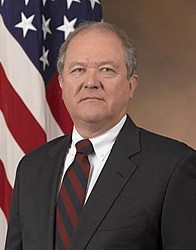 John F. Sopko is the Special Inspector General for Afghanistan Reconstruction. Appointed to the position by President Obama in 2012, Sopko has more than 30 years of experience in oversight and investigations as a prosecutor, congressional counsel, and senior federal government advisor.
John F. Sopko is the Special Inspector General for Afghanistan Reconstruction. Appointed to the position by President Obama in 2012, Sopko has more than 30 years of experience in oversight and investigations as a prosecutor, congressional counsel, and senior federal government advisor.
Prior to his Special Inspector General role, Sopko worked at Akin Gump Strauss Hauer & Feld LLP, an international law firm headquartered in Washington, D.C., where he had been a partner since 2009.
Sopko’s government experience includes over 20 years on Capitol Hill, where he held key positions in both the Senate and House of Representatives. He served on the staffs of the House Committee on Energy and Commerce, the Select Committee on Homeland Security and the Senate Permanent Subcommittee on Investigations. Sopko also served as General Counsel and Chief Oversight Counsel for the House Select Committee on Homeland Security, where he focused on homeland security and counter-terrorism investigations and issues.
After his work in the Senate, Sopko was recruited by the Commerce Secretary to manage the department’s response to multiple congressional, grand jury and press inquiries. While at the Commerce Department, Sopko was named Deputy Assistant Secretary for Enforcement for the Bureau of Export Administration, and Deputy Assistant Secretary for the National Telecommunications and Information Administration.
Previously, Sopko served as a state and federal prosecutor. As a trial attorney with the U.S. Department of Justice Organized Crime and Racketeering Section, he conducted numerous long-term grand jury investigations and prosecutions against organized crime groups. He was the lead attorney in the first successful federal RICO prosecution of the entire leadership structure of an American La Cosa Nostra crime family. In 1982, he received the Justice Department’s Special Commendation Award for Outstanding Service to the Criminal Division and in 1980 he received the department’s Special Achievement Award for Sustained Superior Performance.
Sopko began his professional career as a state prosecutor in Dayton, Ohio, with the Montgomery County prosecutor’s office. He also served as an adjunct professor at American University’s School of Justice, where he received the Outstanding Adjunct Faculty Teaching Award in 1984 and the Professor of the Year Award in 1986. He received his bachelor’s degree from the University of Pennsylvania in 1974, and his law degree from Case Western University School of Law in 1977. He is a member of the bars of Ohio and the District of Columbia.
Paul Bodnar
Monday, June 20, 2022
Topic: Financing the Low-Carbon Future
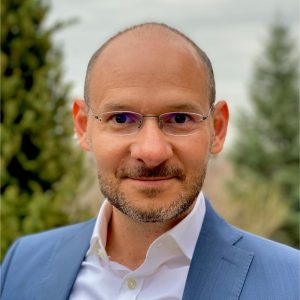 Paul Bodnar is Global Head of Sustainable Investing at BlackRock. His team drives BlackRock’s leadership in sustainable investing through the development of cutting-edge climate and sustainability research and integration of these insights throughout BlackRock’s suite of investment solutions and Aladdin.
Paul Bodnar is Global Head of Sustainable Investing at BlackRock. His team drives BlackRock’s leadership in sustainable investing through the development of cutting-edge climate and sustainability research and integration of these insights throughout BlackRock’s suite of investment solutions and Aladdin.
Paul previously served as Chief Strategy Officer at RMI, where he founded the Center for Climate-Aligned Finance and helped launch the Climate Finance Access Network and Mission Possible Partnership. Paul served in the Obama White House as Special Assistant to the President and Senior Director for Energy and Climate Change at the National Security Council. He was a key architect of the Obama Administration’s international climate policies culminating in the Paris Agreement.
Prior to that, Paul worked at the State Department as U.S. lead negotiator for climate finance and led the design of numerous initiatives including the Global Innovation Lab for Climate Finance and the U.S.-Africa Clean Energy Finance Initiative. Earlier in his career, Paul was Director for Carbon Finance at the $1.2 billion carbon fund managed by London-based Climate Change Capital, where he structured the fund’s largest deals. He was also co-founder and partner at Vertis Environmental Finance, now one of Europe’s leading environmental commodity brokerage firms. Paul holds a BA from Stanford and an MA from Harvard, both in international relations.
Stacia George
Monday, May 9, 2022
Topic: Winning Without Weapons: The Tools We Have To Address Conflict & Terrorism
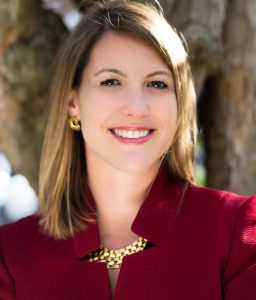 Stacia George became director of the The Carter Center’s Conflict Resolution Program in 2021.
Stacia George became director of the The Carter Center’s Conflict Resolution Program in 2021.
She previously served as director for West and Central Africa and Haiti at Chemonics International Inc., a global implementer of international development assistance. George previously served as the deputy director for USAID’s Office of Transition Initiatives (OTI) and is an expert in conflict management and international development with specializations in conflict-affected environments, stabilization, democracy, and community-driven development programming.
Earlier, George was a foreign policy fellow on the Africa Subcommittee of the U.S. Senate Foreign Relations Committee and was the practice director for government services at Caerus Associates. She held an International Affairs Fellowship from the Council on Foreign Relations in 2011.
During 11 years with USAID, George was country representative for programs in the Federally Administered Tribal Areas of Pakistan. She managed OTI’s Afghanistan program as the deputy team leader for Asia and the Middle East, established programs in Colombia, Nepal, and Sudan, and served as country representative in the Democratic Republic of the Congo. George holds degrees in international studies and Spanish from Niagara University and International Conflict Management and Economics from the Johns Hopkins School of Advanced and International Studies.
Laura Kennedy
Monday, April 11, 2022
Topic: The Central Asian States of the Former Soviet Union
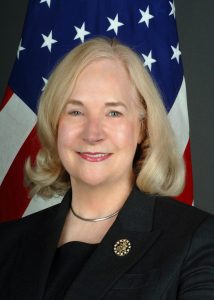 Ambassador Laura Kennedy is a foreign affairs expert who served for nearly 40 years with the U.S. Foreign Service. She was Ambassador to Turkmenistan (2001-3), Deputy Assistant Secretary of State for European and Eurasian Affairs (2004-5), taught and served as Deputy Commandant at the National War College (2007-9), and was appointed U.S. Permanent Representative to the Conference on Disarmament in Geneva and Special Representative for Biological Weapons Convention Issues (2010-13). After retiring, she was recalled to active service in May 2014 to serve as Chargé d’Affaires at the U.S. Embassy in Turkmenistan until September 2014 and then as Charge at the U. S. Mission to the United Nations in Vienna and a member of the Board of Governors of the International Atomic Energy Agency until July 2015. Amb. Kennedy is an elected member of the American Academy of Diplomacy and serves on the Board of the Arms Control Association, the Advisory Council of the Center for Arms Control and Nonproliferation, the Leadership Council for Women in National Security and the Deep Cuts Commission.
Ambassador Laura Kennedy is a foreign affairs expert who served for nearly 40 years with the U.S. Foreign Service. She was Ambassador to Turkmenistan (2001-3), Deputy Assistant Secretary of State for European and Eurasian Affairs (2004-5), taught and served as Deputy Commandant at the National War College (2007-9), and was appointed U.S. Permanent Representative to the Conference on Disarmament in Geneva and Special Representative for Biological Weapons Convention Issues (2010-13). After retiring, she was recalled to active service in May 2014 to serve as Chargé d’Affaires at the U.S. Embassy in Turkmenistan until September 2014 and then as Charge at the U. S. Mission to the United Nations in Vienna and a member of the Board of Governors of the International Atomic Energy Agency until July 2015. Amb. Kennedy is an elected member of the American Academy of Diplomacy and serves on the Board of the Arms Control Association, the Advisory Council of the Center for Arms Control and Nonproliferation, the Leadership Council for Women in National Security and the Deep Cuts Commission.
David Cooper
Monday, March 14, 2022
Topic: The Third Nuclear Age: Between Disarmament and Armageddon
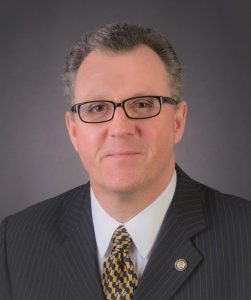 Dr. David A. Cooper recently retired as The James V. Forrestal Professor of National Security Affairs at the U.S. Naval War College in Newport, Rhode Island, where he previously served for eight years as the Chair of the Department of National Security Affairs. Before transitioning to academia he served for almost two decades as a career policy official in the Office of the Secretary of Defense including as Director of Strategic Arms Control Policy, Director of Nonproliferation Policy, and Senior Director for Homeland Security Integration. His areas of expertise include nuclear strategy, arms control and disarmament, nonproliferation, multilateral negotiations, homeland security, and international
Dr. David A. Cooper recently retired as The James V. Forrestal Professor of National Security Affairs at the U.S. Naval War College in Newport, Rhode Island, where he previously served for eight years as the Chair of the Department of National Security Affairs. Before transitioning to academia he served for almost two decades as a career policy official in the Office of the Secretary of Defense including as Director of Strategic Arms Control Policy, Director of Nonproliferation Policy, and Senior Director for Homeland Security Integration. His areas of expertise include nuclear strategy, arms control and disarmament, nonproliferation, multilateral negotiations, homeland security, and international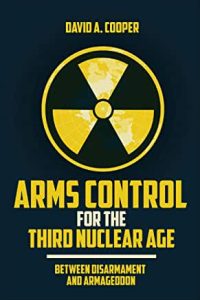 relations theory. He is the author most recently of Decision-Making in American Foreign Policy: Translating Theory Into Practice
relations theory. He is the author most recently of Decision-Making in American Foreign Policy: Translating Theory Into Practice
(Cambridge University Press, 2019) and Arms Control for the Third Nuclear Age: Between Disarmament and Armageddon (Georgetown University Press, 2021).
Steve Simon
Monday, February 21, 2022
Topic: The US and the Middle East: What Went Wrong?
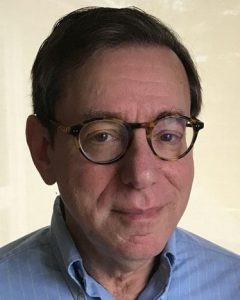 Steven Simon joined the Center for International Studies (CIS) at the Massachusetts Institute of Technology in 2021 as its Robert E Wilhelm Fellow following a prolific career in government, private industry, and academia.
Steven Simon joined the Center for International Studies (CIS) at the Massachusetts Institute of Technology in 2021 as its Robert E Wilhelm Fellow following a prolific career in government, private industry, and academia.
Simon served as the National Security Council (NSC) senior director for the Middle East and North Africa during the Obama Administration and as the NSC senior director for counterterrorism in the Clinton White House. These assignments followed a fifteen-year career at the US Department of State.
Between government assignments, he was a principal and senior advisor to Good Harbor LLC in Abu Dhabi and director of the Middle East office of the International Institute for Strategic Studies in Manama. He managed security-related projects at the RAND Corporation and was the Hasib Sabbagh Senior Fellow for Middle Eastern Studies at the Council on Foreign Relations.
His academic appointments include: the John J McCloy ’16 Professor of History at Amherst College, lecturer in government at Dartmouth College, and most recently as Professor in the Practice of International Relations at Colby College. He has had fellowships at Brown University, Oxford University, and the American Academy in Berlin. He will continue his work as a non-resident senior research analyst with the Quincy Institute for Responsible Statecraft, a think tank in Washington, DC.
During Simon’s time at MIT, he will be embarking on a project related to the liquidation of imperial commitments, exploring the effects of the war on terror on the United States, and writing a monograph on the history of US-Middle East relations from 1979 to the present, entitled The Long Goodbye: The United States and the Middle East from the Islamic Revolution to the Arab Spring, which will be forthcoming in 2022.
Simon has co-authored several books including The Age of Sacred Terror (Random House, 2004), winner of the Arthur C. Ross Award for best book in international relations; The Next Attack (Henry Holt, 2006), a finalist for the Lionel Gelber Prize which focused on the US response to 9/11; Iraq at the Crossroads: State and Society in the Shadow of Regime Change (Oxford, 2003); Building a Successful Palestinian State and The Arc: A Formal Structure for a Palestinian State (RAND 2005); The Sixth Crisis (Oxford, 2010); The Pragmatic Superpower: The United States and the Middle East in the Cold War (W.W. Norton, 2016); and Our Separate Ways (Public Affairs, 2016).
Jok Madut Jok
Monday, January 24, 2022
Topic: US Military Training of African Forces: A Source of Influence or a National Security Risk?
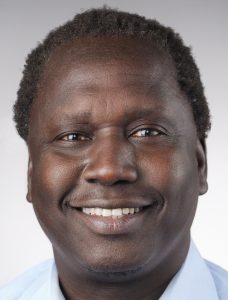 Dr. Jok Madut Jok is a Professor of Anthropology at the Maxwell School of Citizenship and Public Affairs of Syracuse University. Dr. Jok’s areas of specialization include security, governance, democracy, and development in South Sudan and Sudan. He has also written extensively about gender, sexuality and reproductive health, humanitarian aid, ethnography of political violence, gender-based violence, and war and slavery and the politics of identity in South Sudan and Sudan.
Dr. Jok Madut Jok is a Professor of Anthropology at the Maxwell School of Citizenship and Public Affairs of Syracuse University. Dr. Jok’s areas of specialization include security, governance, democracy, and development in South Sudan and Sudan. He has also written extensively about gender, sexuality and reproductive health, humanitarian aid, ethnography of political violence, gender-based violence, and war and slavery and the politics of identity in South Sudan and Sudan.
Dr. Jok is the author of Breaking Sudan: The Search for Peace (Oneworld Publications, 2017), Sudan: Race, Religion and Violence (One World Publication, 2007), War and Slavery in Sudan (University of Pennsylvania Press, 2001), and Militarization, Gender and Reproductive Health in South Sudan (Edwin Mellen Press, 1998). He has also co-authored The Sudan Handbook (co-edited with J. Willis, J. Ryle and S. Baldo, James Currey, 2011).
Before joining the Maxwell School he was visiting professor of anthropology, University of Oxford, and Fellow of Linacre College. He had also served in the government of South Sudan as undersecretary in the Ministry of Culture and Heritage, 2010-13. He is the founding director of the Sudd Institute, a public policy research center.

